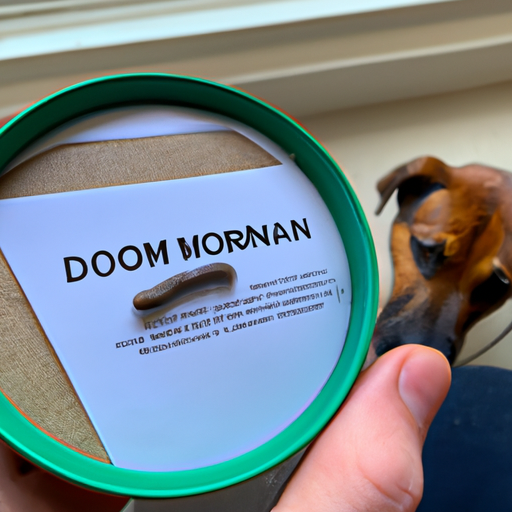Introduction
Your furry friend depends on you, the caregiver, to keep them healthy and safe. One common issue dogs face is a roundworm infestation. You might notice symptoms like a dull coat, weight loss, or a potbelly. But fear not, you’re not alone in this battle. I’m here to guide you through the steps to treat roundworms in your dog at home.
Understanding Roundworms
Roundworms, also known as nematodes, are parasites that commonly infest dogs. They can grow up to seven inches long and are often found in the dog’s intestines. Although roundworms can affect dogs of any age, puppies are more susceptible due to their immature immune systems.
Not all roundworm infections cause noticeable symptoms. However, severe infestations can lead to serious health issues. Here’s a table illustrating the common symptoms:
| Symptoms | Description |
|---|---|
| Weight loss | Even if your dog eats well, they may lose weight. |
| Dull coat | Your dog’s normally shiny coat may become dull and lackluster. |
| Potbelly | Roundworms can cause a swollen, potbelly appearance in puppies. |
Home Remedies
-
Pumpkin Seeds: Grind raw, organic pumpkin seeds and mix a teaspoon with their food twice daily. Pumpkin seeds are non-toxic, rich in amino acids, and effective against roundworms.
-
Carrots: Carrots are excellent for the digestive system and can help clear the intestines of parasites. Add finely grated carrots to your dog’s meals.
-
Apple Cider Vinegar: It helps create an inhospitable environment for parasites. Mix 1/4 to 1 teaspoon depending on your dog’s size, into their food twice daily.
-
Diatomaceous Earth: Sprinkle food-grade diatomaceous earth over your dog’s food to kill roundworms.
Remember, these are home remedies. Always consult with a vet before starting any treatment.
Preventative Measures
Prevention is always better than cure. Here are some tips to prevent roundworms:
- Ensure your dog’s living area is always clean.
- Regularly wash your dog’s bedding and toys.
- Avoid letting your dog eat feces or dead animals.
- Regular vet check-ups are vital.
Visiting the Vet
If home remedies are not working, or if your dog’s condition worsens, you should visit the vet. Your vet may prescribe specific deworming medications. These medications are usually administered orally and may require multiple doses.
FAQ
Q: Can roundworms be transmitted to humans?
Yes, roundworms can be transmitted from dogs to humans, especially young children who may play in contaminated soil.
Q: How often should I deworm my dog?
Usually, puppies should be dewormed every two weeks until twelve weeks of age, then monthly until six months of age. After six months all dogs need to be dewormed every three months for effective protection.
Q: Can I prevent roundworms with diet?
A balanced diet can help boost your dog’s immune system, but it cannot prevent roundworms. Regular vet check-ups and deworming are necessary.
In conclusion, always remember that your role as a caregiver is vital. Like the saying goes, “an ounce of prevention is worth a pound of cure.” So, keep an eye on your dog’s health, and they’ll thank you with a wagging tail and a happy bark!



